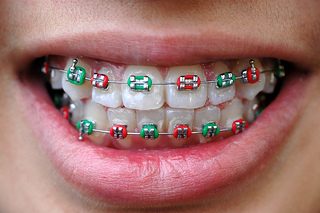Summer Smiles
September 4th, 2024

The “Back to School” ads are out already? Halloween candy’s showing up in stores? Just a minute—summer isn’t quite over yet! While the days are still sunny and warm, let’s look at a few cool ways to keep your smile bright with some healthy dental options:
- Healthy Drinks
Hot summer days mean it’s time to hydrate. But sodas, fruit drinks, and sports drinks can have a lot of added sugars, which can mean added cavities. They can also be quite acidic, and acids break down tooth enamel. So, what to reach for on a hot day? Water!
Water is a good choice whenever you’re thirsty. Water is essential for healthy bodies and for healthy teeth and gums, too. Water helps wash away food particles which feed the cavity-causing bacteria in plaque. Acids in our foods and drinks break down tooth enamel, and water helps balance out those acids. If you have fluoridated water, fluoride makes enamel stronger and even helps reverse early decay.
- Healthy Gear
It’s great to get outdoors again for sports like biking, water skiing, baseball, or hoops. And it’s great to keep your teeth safe while you’re active. A mouthguard will help protect your teeth and mouth from contact when you’re playing contact sports. If you wear braces, Drs. Magda Barnard & Lee Erickson can craft a mouthguard that will protect both your mouth and your braces!
If you’re just out of braces or aligners, don’t forget to wear your retainer. Retainers keep your teeth from moving out of position while your jawbones rebuild strong bone tissue around them. Make sure that healthy smile you worked so hard for stays looking its best.
Your appliances protect you, so return the favor and make sure your appliances stay healthy by cleaning them after use and storing them in their protective cases.
And remember to replace another piece of protective equipment regularly—your toothbrush. If you haven’t replaced your toothbrush for several months, it’s time to go shopping. Toothbrushes wear down over time, especially if you wear braces, and, after three months or so, can’t clean plaque as effectively. Which reminds us . . .
- Healthy Habits
Even as we take advantage of the end of summer with last minute camping, or travel, or action-filled weekends, one thing should stay on schedule—regular brushing and flossing.
You should be brushing twice a day, for two minutes each time. If it’s hard to time yourself, try playing a favorite two-minute song or using a timer or even a brushing app. And don’t forget to floss! Floss gets into spaces where bushes can’t to remove plaque. Floss once a day to keep your teeth their cleanest. Be proactive if your orthodontist suggests more frequent brushing and flossing while you’re wearing braces.
Finally, don’t neglect your orthodontic care. Keep up with appointments at our Bedford, NS office. If you wear aligners, wear them all the hours recommended. If you have bands, replace them daily and whenever they start to feel loose. If you have an appliance, use it as directed. The more you keep to your orthodontic schedule, the faster you’ll be enjoying your healthy, beautifully aligned smile.
Summer’s almost over, but these healthy tips work in fall, winter, and spring, too—for a smile that’s sunny and bright all year long!





 Website Powered by Sesame 24-7™
Website Powered by Sesame 24-7™